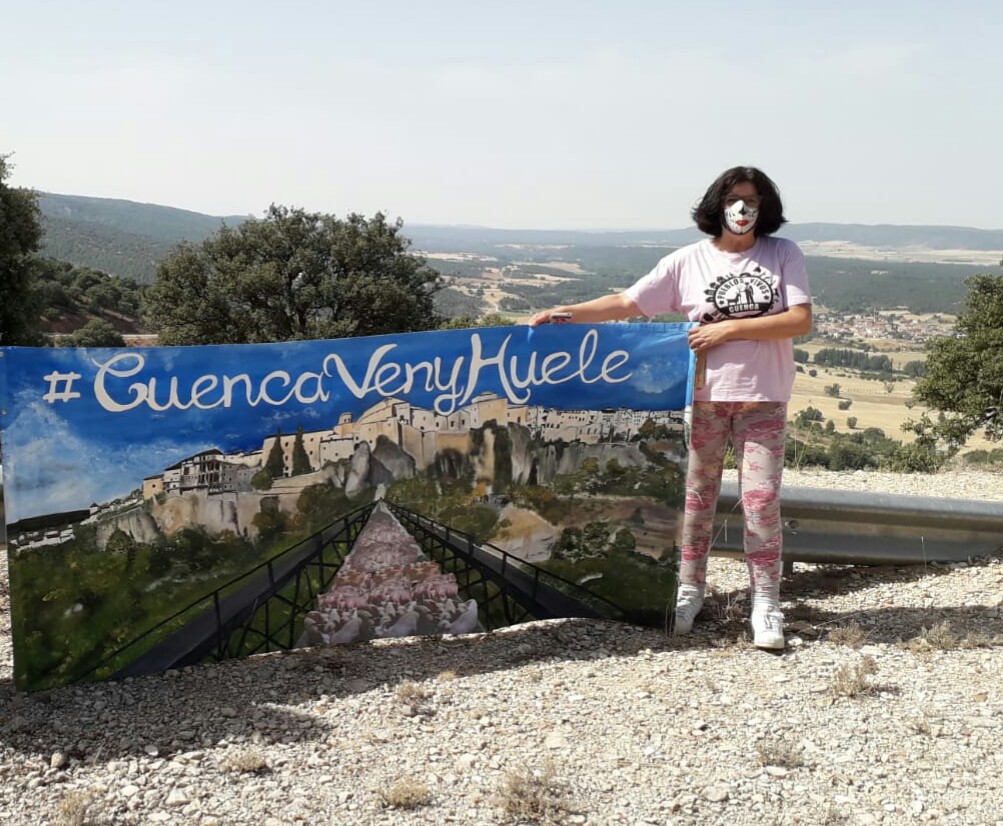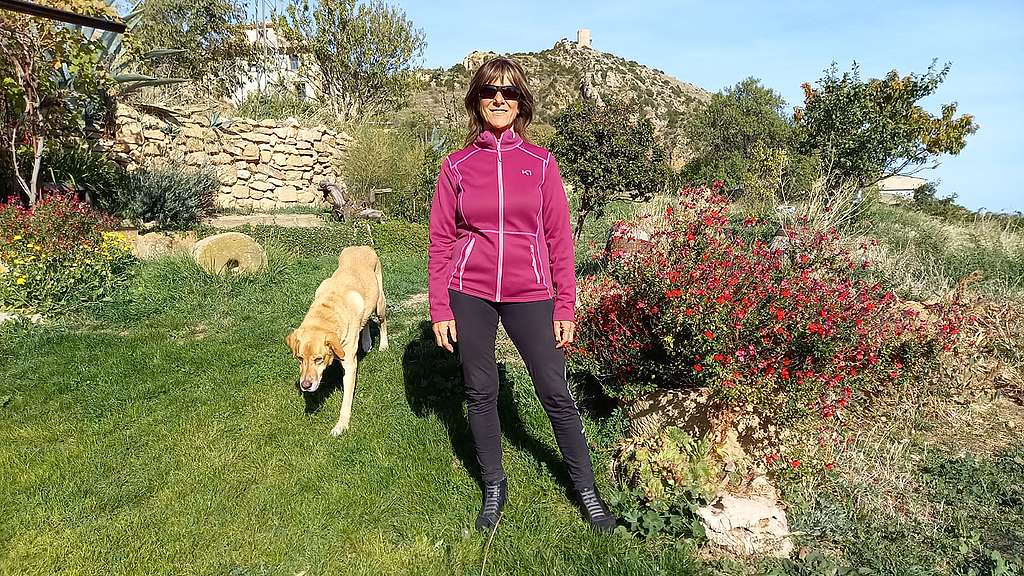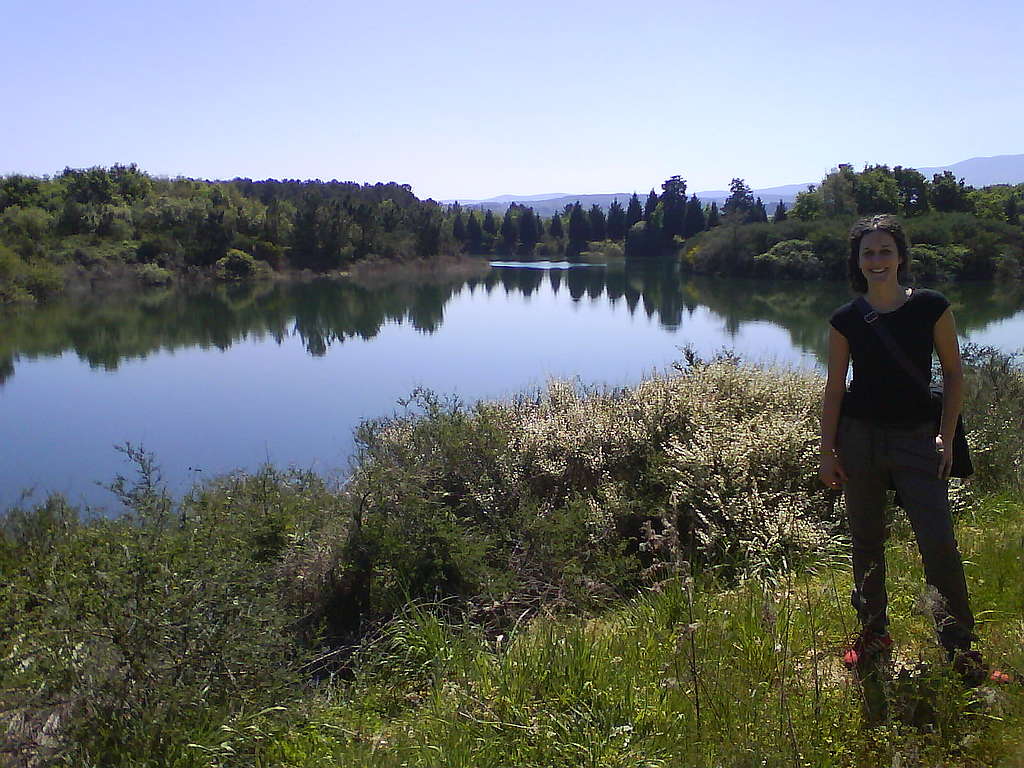Lorea Flores - Greenpeace Spain
Today, 15 October is the International Day of Rural Women. In Spain, the Coordinadora Estatal Stop Ganadería Industrial (state committee against industrial farming) has also chosen this day to protest against a farming model that is harmful to people, animals and the planet. In cities, we often have a false image of rural people, especially of rural women. We imagine empty and sleepy villages, with old women shut up in their homes, cooking and going about their daily chores, with little impetus to change their situation. We typically associate social groups and activists with cities.
That’s why, on this day, at Greenpeace Spain we’re joining with rural women to make their voices heard. Here are the stories of three of the many women who are collaborating to organise meetings and demonstrations against industrial farming across the country today.

Remedios Bobillo Jiménez
Remedios is a member of the neighbourhood platform Pueblo Sostenible de Mota del Cuervo and president of the Pueblos Vivos Cuenca association. Here’s what moved her to take action:
“I was 24 when I saw Greenpeace activists on television in their boats trying to stop nuclear dumping in Galicia. That was thirty years ago. I knew then I would protect my piece of Mother Earth. When in 2018 I found out they wanted to install an industrial farm for pig fattening in my town, Mota del Cuervo, I knew the shit was going to reach my doorstep. I knew I had to fight against its installation. I didn’t care if the City Council said it complied with the law. After three years of uncertainty, the City Council refused the license, but I haven’t stopped fighting. Now, as president of Pueblos Vivos Cuenca, I help other towns with similar problems.”

Pilar Torres L’era
Pilar is a member of the Loporzano Platform, a local movement resisting factory farming.
“I began taking action against industrial farming in 2015 when people in my town became concerned after learning that paperwork for two industrial pig farms had been submitted to our city council. As I became aware of how harmful this production model is for the planet and every creature living in it, I decided to join the neighborhood groups that opposed this production model while promoting organic, pasture-based, extensive farming models. The sector only brings profits to big business and it stifles the rural world.”

Montse Valencia León
Montse is part of the Auga Limpa Xa community group working to protect their environment and waterways.
“I live in Baixa Limia, and it makes me sad to see the state of the waters of As Conchas reservoir. These waters hold my childhood memories, but because of a business ambition that knows no law and the ineptitude of administrations that can’t or won’t manage the resources in rural areas, they are now full of cyanobacteria.
“I can’t understand why the villages of Baixa Limia were condemned to such solitude. I find it intolerable that my grandparents’ land, their leiras, was expropriated to make way for the waters of a reservoir that is putrid today. At this rate, the first Galician reservoir will be unrecoverable; yet the hydroelectric company that exploits the reservoir and the meat company that pollutes it increase their profits with collusion of the administrations.”
Together we are stronger
All women agree the coordinated work of the Coordinadora Estatal Stop Ganadería Industrial is crucial.
“The Coordinadora Estatal is essential. The cities must hear what is happening in rural areas. The role of the committee is to inform the cities. We must understand that what we eat in the cities comes from a country area,” says Montse.
“Big companies run the industrial farming industry. To fight them, all neighbourhood movements and associations aware of the environmental damage of this model must coordinate efforts and work together; this is David against Goliath. The more of us, the more impact will have, and society will hear our demands,” explains Pilar.
According to Remedios, the Coordinadora “is a network that started from the ground but must reach high; thus, union and coordination are vital because we have to fight locally to become global and because belonging to a group makes us stronger.”
Lorea Flores is the mobilisation coordinator for Greenpeace Spain in Euskadi and Navarra. She holds a masters in Biodiversity and Ecosystem Management and a doctorate in River Ecology.
You can read the full story in Spanish on the Greenpeace Spain website.

No comments:
Post a Comment
Note: Only a member of this blog may post a comment.